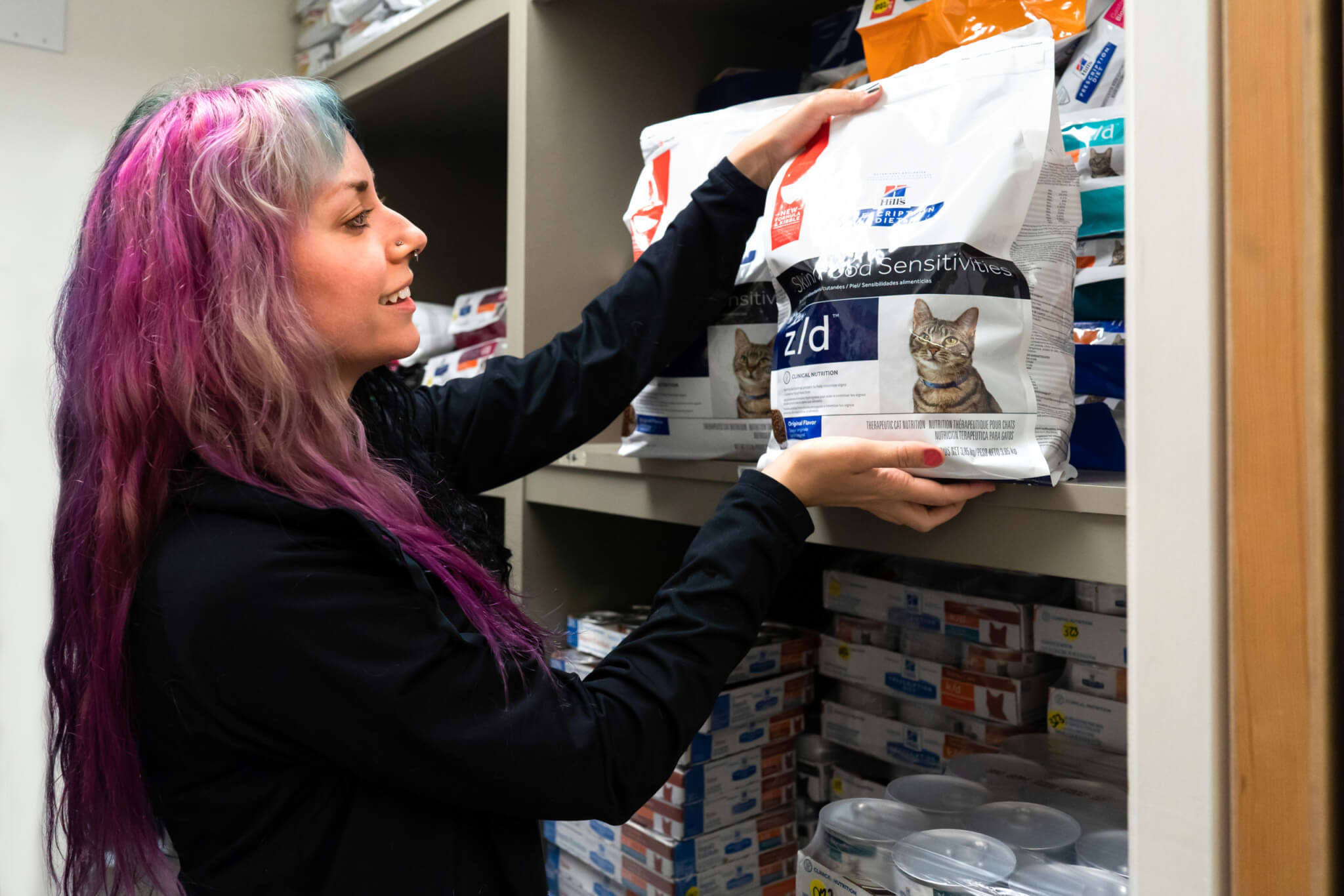
You are what you eat. Preventive care starts with food.
Appropriate nutrition enhances your pet’s quality and quantity of life. The requirements of one pet may be much different than the needs of another. Therefore, a discussion about your pet’s diet and a proper nutrition assessment should be included as part of a routine veterinary examination.
With any nutritional assessment, your veterinarian will ask many questions about your pet’s diet. Although these questions may sound tedious, this helps your veterinarian to ensure your pet is on the most appropriate diet for their specific needs and requirements.
As part of a routine nutritional assessment, your veterinarian will also note body condition and muscle condition scoring. Body condition scoring is an assessment of the patient’s overall fat content. The body condition score (BCS) is graded on a scale of 1-9. An ideal BCS is between 4 and 5. Anything above is considered overweight, anything below is considered underweight. Keeping your pet between a BCS of 4 and 5 reduces the risk of diseases such as diabetes, arthritis, and joint disease. The muscle condition score is an evaluation of the patients overall lean muscle mass. This is graded on a scale of 1 to 3 where 3 is ideal and 1 denotes muscle wasting. Both the BCS and MCS are important when assessing patients overall nutrient requirements.
Once your pet’s BCS and MCS are evaluated along with your pet’s current weight, the doctor can more accurately calculate your pet’s maintenance energy requirement (the number of calories they should intake on a daily basis based on their lifestyle). Frequent monitoring of their weight, BCS, and MCS is vital in ensuring your pet’s nutritional requirements are being maintained. In the event a pet’s weight, BCS, or MCS are outside of the ideal range the doctor must distinguish if your pet has a specific disease factor or if the diet is not appropriate to maintain a healthy weight and muscle condition.
Arthritis is common in older animals therefore it is another factor to consider in the feeding of the aging pet. Many supplements are available to add to your pet’s food which increase the level of glucosamine and chondroitin. There are prescription diets that have been developed for patients with joint disease that help increase mobility by providing an increase in omega 3 fatty acids, and other anti – inflammatory ingredients. These diets have been shown to have great success for patients that suffer from underlying joint disease. Additionally, they may also have a restricted caloric content, as patients suffering from arthritis are often overweight.

Ravenna Animal Hospital
Call/Text: 206-522-2114
Fax: 206-522-0953
